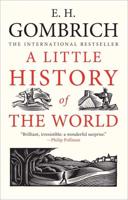Publisher's Synopsis
On 16th May 1811, during Wellington's long campaign against Napoleon's armies of occupation in Portugal and Spain, an army of some 35,000 British and allied troops under the command of Marshal William Carr Beresford took up position around the village of Albuera in south-western Spain. They stood astride the main road to the isolated French fortress of Badojoz to prevent its relief by the army of Marshal Soult, marching up from Andalusia. Beresford was a brave man and a gifted staff officer, but no tactician, and his deployment and control of his army was flawed. His infantry won him a victory, but an appalling cost in lives; and Albuera passed into legend as one of the most savage battles not just of the Peninsular War but in the entire history of the British Army.;The author's text, illuminated by many eyewitness quotations, covers Wellington's ejection of Massena's army from Portugal early in the year; Barrosa, where an astonishing up-hill attack recaptured vital ground, and in the process took an Imperial eagle standard for the first time; Campo Major, which demonstrated both the skill of the British cavalry and Beresford's weakness in command; Wellington's victory at Fuentes de Onoro, scene of both the most skillful manoeuvres and the most brutal hand-to-hand street battles; Albuera, which saw the unprecedented destruction of a British brigade by French cavalry, and the greatest infantry killing-match of the whole war as seven British battalions stood off 19 French battalions, trading volleys at 60 yards' range for an hour; the failed siege of Badojoz; and the successful autumn battles of consolidation.;The centrepiece, inevitably, is Albuera, Bryon's "glorious field of grief", which produced some of the most astonishing episodes of heorism and sacrifice of the whole war - a war in which wone Wellington's redcoats the ungrudging respect of ally and enemy alike as the finest infantry in the world.










